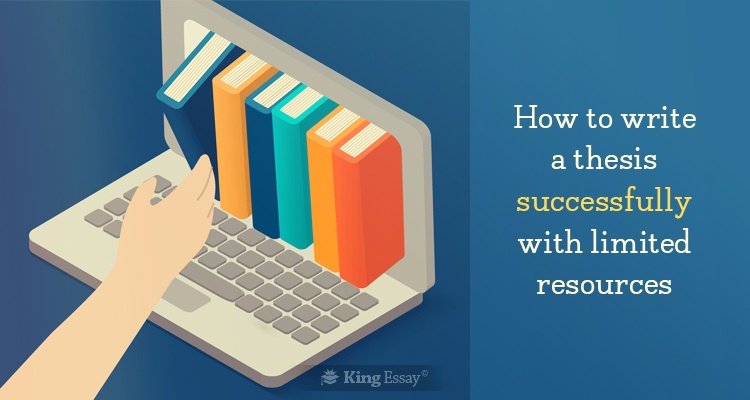How to Write a Thesis Successfully with Limited Resources
Posted on: August 5, 2017
To understand how to write a thesis has become a crucial constituent of attaining a higher qualification whether it is an undergraduate or a master’s qualification. The discipline of study which scholars have a predilection for provides an opportunity to write the best proposal ideas based on those preferences. Institutes assess the student’s abilities to research, investigate, evaluate and analyse a subject and finally establish an empirical judgement which is completely their own work.
To completely understand the task at hand it is important to understand the definition before actually beginning the composition process. Most students will be aware of the skill of academic essay writing. The objectives are similar to academic essay writing but there are also some fundamental differences. To acknowledge how to write thesis, scholars need to be able to be able to emphasise and highlight their skills of logical reasoning following a chronological order. The dissertation proposal writing service contents need to be configured in an understandable way at the same time they need to follow all the academic stipulations prescribed by the institute.

The fundamental aspect to comprehend how to write a good thesis is time management. Chances are the project will not be due until months from the date of being assigned. The perception behind this is that the project will require expansive research in education to produce an outstanding and incorruptible piece of academic work. When beginning to select a proposition to be researched further, keep in mind that you will be dealing with this subject for a significant amount of time. Don’t hesitate to speak with your counsellor to get professional advice if you have any qualms and quandaries regarding the main subject of your dissertation.
The key to how to write a thesis professionally has to do with your approach towards the investigation. There are various tools which you can employ to investigate the different propositions and subjects stemming from the original research of the main argument. The entire work needs to be completely free of plagiarism to represent your true vocation and dedication towards the subject. Once you believe you have approached the subject from every angle possible, have a qualified person relevant to the subject of your dissertation have a look at it. They might be able to confront the subject with a completely different perspective, one which you might have completely overlooked.
The research and the language of the entire thesis should be justifiable and comprehensible to the general audience. It should follow a chronological order where one event follows the next obvious step in the research. Each step needs to be exhaustive and propound a resolution to the investigation conducted in that stage. The explanation needs to indicate how each phase leads the next in the course of the investigation. If the author uses quotations or references the works of other authors in the course of the research, they need to be referenced appropriately to differentiate it from the independent analysis.
Professional copy editing or revision of the entire work needs to be done before submitting the final copy. Seek the advice of course counsellors to make sure that you have satisfied all the academic prerequisites that need to be fulfilled. Double-check all the references and the formatting of the entire project before submitting the final work.